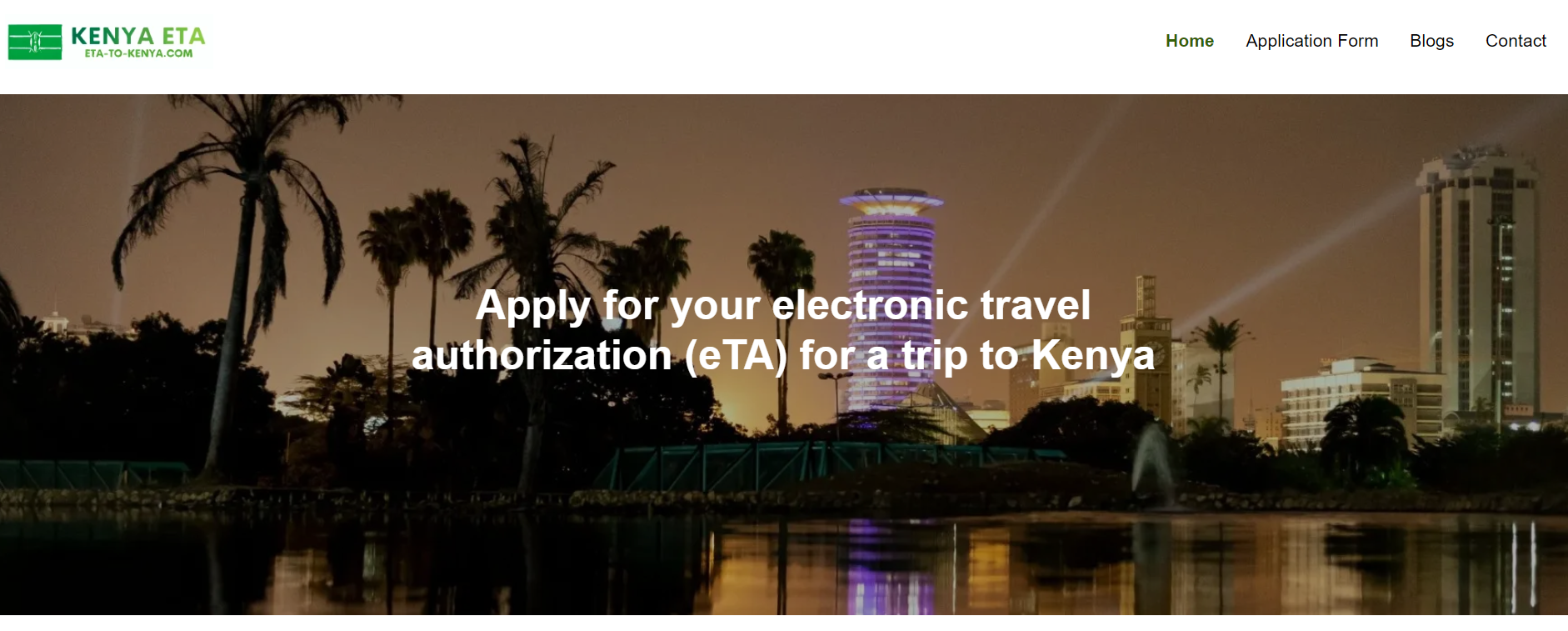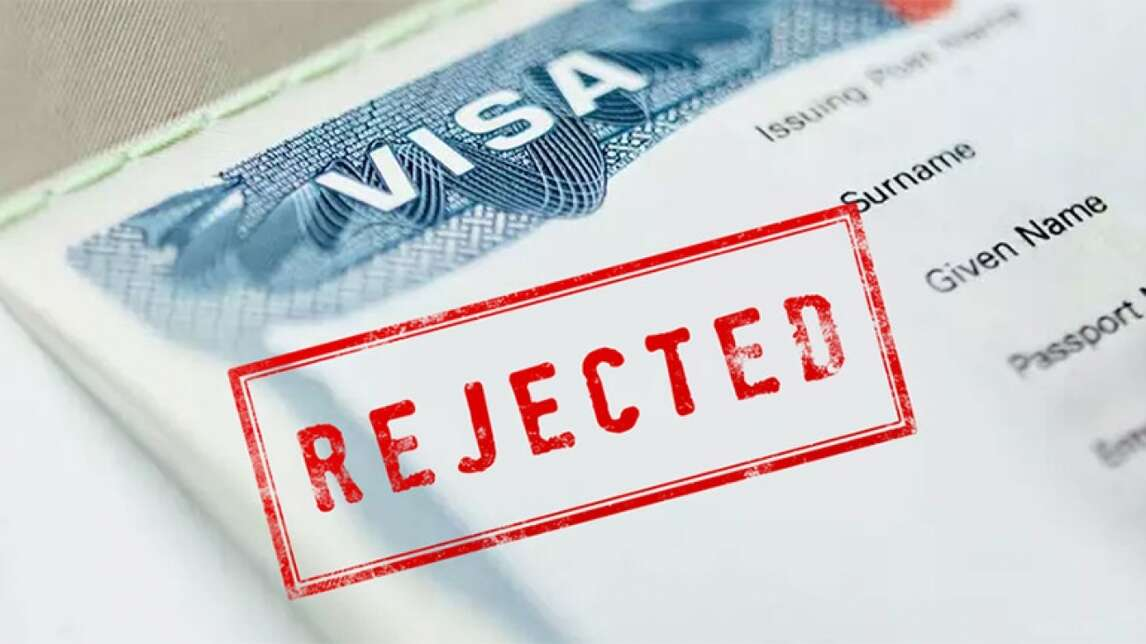Kenya's recent implementation of the Electronic Travel Authorization (eTA) system has sparked considerable debate and criticism, particularly from those in the tourism and hospitality sectors. This development came on the heels of President William Ruto's announcement last year about Kenya's move towards a visa-free policy for visitors starting in early 2024. However, this anticipated policy shift has taken a different turn.

From Visa-Free to eTA: A Policy U-Turn?
As the new policy rolled out, travellers, except those from East African countries, discovered they were now obliged to apply for the eTA, incurring a fee of at least $30. This requirement was enacted on January 5, 2024, demanding that all travellers, barring East Africans, apply for and pay for this single-entry eTA at least 72 hours before their journey to Kenya.
This new directive has particularly impacted travellers from 51 countries who previously enjoyed visa-free entry into Kenya. They are now faced with the unexpected expense of $30 for the eTA, a stark contrast to the previous visa cost, which was upwards of $51.
The change has been met with widespread dissatisfaction and confusion, as evidenced by numerous complaints on social media platforms. These grievances centre around what many perceive as a broken promise of open borders by the Kenyan government.
Davis Nyagah, a prominent immigration lawyer, has pointed out that the eTA system eliminates the previous categorisations, treating all visitors equally and subjecting previously exempt countries to new costs. He suggests that this move by the government is a strategy to increase revenue collection from a visa under a different name.
The Kenyan government's stance was further clarified by Julius Bitok, Principal Secretary of the State Department for Immigration. On Thursday, he revealed that the government had amassed a significant revenue of a million dollars (Ksh159 million) from around 25,000 eTA applications.

Navigating the Labyrinthine eTA Maze

The new eTA system has also been criticized for its cumbersome requirements. Travelers must now provide detailed paperwork, including confirmed hotel bookings, flight tickets, and bank statements spanning three months. Any changes in flight schedules not attributable to the travellers necessitate a reapplication and an additional wait of 72 hours.
Some travellers have gone so far as to label this new regime as the most stringent visa system in Africa, disguised as liberalising travel policies.
Tourism Industry Takes a Hit

The tourism industry, represented by voices like Michael Macharia, CEO of the Kenya Association of Hotelkeepers and Caterers, has expressed concerns about the negative impact of the eTA. Macharia highlights that the introduction of the eTA was executed without regard to existing bilateral agreements with over 50 countries. This abrupt policy shift, he fears, could prompt retaliatory measures from these countries, potentially imposing fees on Kenyan travellers.
Moreover, Macharia criticises the lack of public participation in the decision-making process, suggesting that a more inclusive approach, possibly six months, would have allowed for necessary scrutiny and amendments.
Defending the eTA: Efficiency and Security Claims
Defending the eTA, government officials argue that the system is designed to process many people efficiently. According to Mr Bitok, the system is operating smoothly, with most applicants receiving their eTA within 10 to 24 hours and those requiring security checks within a maximum of 72 hours.
Evelyn Cheluget, Director-General of Immigration, emphasised the government's attentiveness to feedback and the ongoing improvements to the system. She highlighted the reduction in the number of questions on application forms and the round-the-clock efforts of her team to expedite processing, especially for priority cases.

The Kenyan government views the eTA as a fair, fast, and reliable system that caters to the country’s security and strategic interests and aligns with global trends towards electronic travel authorisations.
In the broader context of African travel policies, the Africa Visa Openness Index 2023, a collaborative report by the African Union and African Development Bank, has noted a significant increase in visa-free travel policies across the continent. The report, which assesses the extent of travel openness among African countries, shows an improvement in visa-free intra-African travel, visas on arrival, and a decrease in the necessity for visas obtained before travel. This trend underscores the ongoing efforts to liberalise visa restrictions and facilitate seamless travel across Africa, contributing to the broader goals of the African Continental Free Trade Area (AfCFTA).
Kenya's eTA: A Crossroads for Travel Policy
Kenya's eTA stands at a crossroads, its true intentions shrouded in promises, controversies, and justifications. While the government touts its efficiency and security benefits, concerns about hidden agendas and negative impacts on tourism linger. As the debate unfolds, only time will tell if the eTA indeed paves the way for a smooth and welcoming Kenyan travel experience or if it represents a detour on the path towards open borders.
FAQs
What is the eTA, and why was it introduced?
The Electronic Travel Authorization (eTA) is a mandatory online authorisation required for most visitors to Kenya, replacing the previous visa system. While initially announced as a step towards visa-free travel in 2024, the eTA was implemented with a $30 fee for most nationalities. The government cites security and efficiency as critical reasons for the change.
Who needs an eTA, and who is exempt?
Travellers from all countries except those in the East African Community require an eTA. Additionally, diplomatic and official passport holders and children under 16 accompanied by an adult with a valid eTA are exempt.
How much does the eTA cost, and how long is it valid?
The eTA fee is $30 and is valid for a single entry within 90 days from the date of issuance.
What documents do I need to apply for the eTA?
You will need a valid passport with at least six months' validity, a recent digital photograph, proof of travel (flight tickets and confirmed accommodation booking), and financial statements for the past three months.
How long does it take to get the eTA?
Most applications are processed within 10 to 24 hours. However, applicants may require additional security checks for up to 72 hours.
Can I make changes to my application after submitting it?
Minor changes, such as typos or incorrect dates, can be corrected directly in your application dashboard. You may need to submit a new application for significant changes, like a new flight itinerary.
What happens if my flight schedule changes?
If your flight schedule changes for reasons beyond your control, you can update your travel details within your eTA application. However, you may need to reapply if the changes necessitate a different arrival date.
I received an error message during my application. What should I do?
Review the error message carefully and check if you need to include any required information or if there are any inconsistencies in your application. If you cannot resolve the issue, contact the eTA helpdesk for assistance.
Why was the eTA introduced despite promises of visa-free travel?
The Kenyan government's rationale for the eTA implementation remains debated. Some believe it's a revenue-generating measure, while others view it as enhancing security and streamlining immigration processes.
How will the eTA impact tourism in Kenya?
The eTA fee and application requirements have raised concerns about deterring tourism. The industry urges the government to consider the potential negative impact and explore alternative solutions.
Is there any hope for a future visa-free policy in Kenya?
The future of visa-free travel in Kenya remains to be determined. While the eTA represents a step back from the initial announcement, continued discussions and efforts towards greater travel openness across Africa could pave the way for future policy changes.
Like
Dislike
To obtain a eTA for Kenya
- Step1: Complete the online application by providing your passport details
- Step2: Submit payment online using a credit card.
- Step3: Monitor your email for confirmation of payment and receipt of your eTA, which will be sent electronically.
Recent News
- Kenya postpones visa-free entry presidential directive for global visitors
- How Foreigners Will Apply For Kenya ETA Before Visiting (Visa-Free Kenya)
- Kenya replaces eVisa with the Kenya ETA system
- A Travel Guide to Nairobi, Kenya: What to See, Do, Experience
- Is It Safe To Travel To Kenya In 2024?
- Is Kenya safe for solo female travelers?
- Travellers say Kenya's eTA is visa by another name
- What Time is it in Kenya, Nairobi? | eTA to Kenya
- Kenya eTA for Green Card Holders | eTA to Kenya
- Renew Your Kenyan Passport From Anywhere: A Step-by-Step Guide for Kenyans
- China Eliminates Visa Appointment Requirement for Kenyan Nationals
- Kenya to Impose Local Health Insurance Requirement for Foreign Visitors
- DRC Lifts Visa Requirements for Kenyan Travelers
- Holders of Kenyan Passports Permitted to Enter Senegal Visa-Free
- Kenyans to Enter South Africa Without Visas From January 2023
- Rwanda to Launch Visa-Free Entry for All Africans
- What is Kenya famous for?
- Kenya Passport Visa Free Countries List 2024
- Places in Kenya You Must Visit If You are Travelling in 2024
- Types of Kenyan Work Permits and Their Eligibility, Application Fee
- Things to Do If You Only Have 48 Hours to Explore Nairobi, Kenya
- Navigating Kenya's National Parks and Their Unique Offerings
- Places to Eat for Vegetarians When Travelling Through Nairobi
- A Complete Guide to Obtain Work Permits in Kenya
- New Transit Visa Regulations in Spain for Senegalese and Kenyan Travelers
- Proof of Accommodation for Kenya eTA Application | eTA to Kenya
- Kenya Visa-Free Entry: Your 2024 Guide to the New ETA System!
- Introduction of Kenya's ETA System

Comment